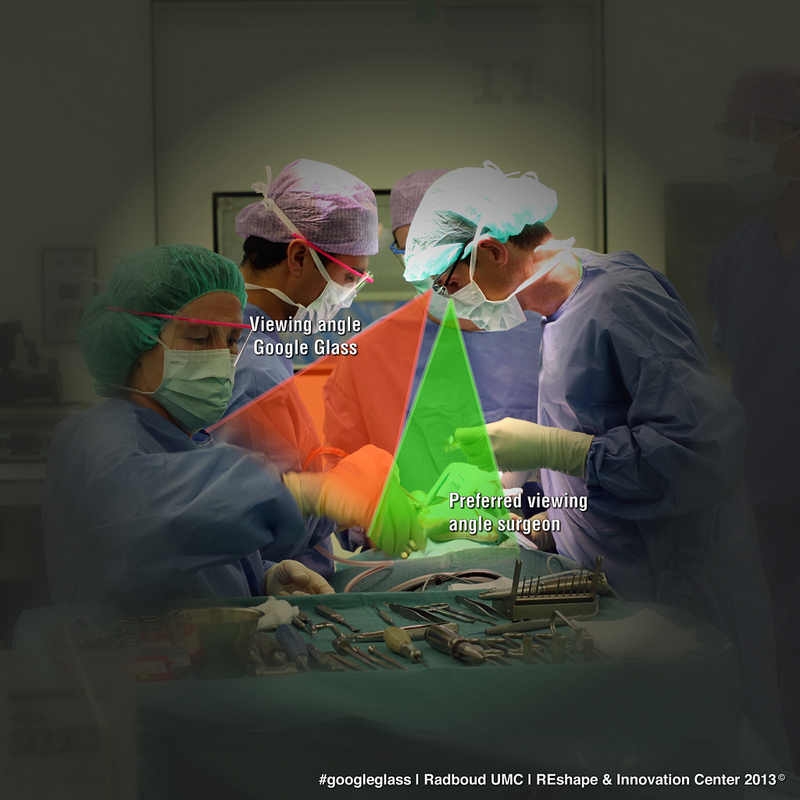CrowdOptic partners with Stanford University Medical Center to deploy Google Glass to evaluate training in a variety of surgical settings for faculty and students.
CrowdOptic, a maker of mobile and wearable broadcasting solutions, today announced that the company is working with the Department of Cardiothoracic Surgery at Stanford University Medical Center to help improve resident training in complex surgical procedures, through the use of Google Glass technology. CrowdOptic is one of five Glass certified partners authorized by the Glass At Work program for developing enterprise solutions for Google Glass.
CrowdOptic’s software lets one Google Glass wearer inherit another’s point of view, simply by looking in the other user’s direction. This hope with this technology is that it will offer a paradigm shift in surgical training, especially in the highly complex area of cardiothoracic training, where a major challenge is creating an environment in which an attending surgeon can provide direct visual feedback to residents conducting operations.
Traditionally, due to the restricted view in the operating room, it has been next to impossible for an attending surgeon to appreciate the perspective of the exact field of view of a trainee, complicating the process of providing essential feedback on techniques. The tool will be deployed where faculty and student teams evaluate training in a variety of surgical settings.
Earlier this month, ProTransport-1 partnered with CrowdOptic to deploy Google Glass in their ambulances and mobile medicine units for real-time video evaluation of patients during transport in Northern California area. The company also has a partnership with UCSF to test CrowdOptic software to enhance physician training and patient care. During the test period, CrowdOptic software, which live streams video footage from wearable devices like Google Glass, will record multiple vantage points during procedures by UCSF Department of Orthopaedic Surgery faculty and then broadcast to offsite locations as a way to enhance communication and educate remote physicians. Visiting physicians will be able to observe multiple surgical procedures at once through Google Glass, as well as inherit each other’s views.
Related: 5 Medical Specialties That Can Benefit From Google Glass

